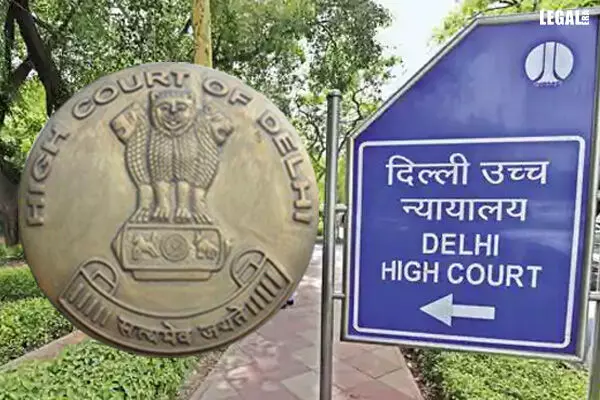- Home
- News
- Articles+
- Aerospace
- AI
- Agriculture
- Alternate Dispute Resolution
- Arbitration & Mediation
- Banking and Finance
- Bankruptcy
- Book Review
- Bribery & Corruption
- Commercial Litigation
- Competition Law
- Conference Reports
- Consumer Products
- Contract
- Corporate Governance
- Corporate Law
- Covid-19
- Cryptocurrency
- Cybersecurity
- Data Protection
- Defence
- Digital Economy
- E-commerce
- Employment Law
- Energy and Natural Resources
- Entertainment and Sports Law
- Environmental Law
- ESG
- FDI
- Food and Beverage
- Gaming
- Health Care
- IBC Diaries
- In Focus
- Inclusion & Diversity
- Insurance Law
- Intellectual Property
- International Law
- IP & Tech Era
- Know the Law
- Labour Laws
- Law & Policy and Regulation
- Litigation
- Litigation Funding
- Manufacturing
- Mergers & Acquisitions
- NFTs
- Privacy
- Private Equity
- Project Finance
- Real Estate
- Risk and Compliance
- Student Corner
- Take On Board
- Tax
- Technology Media and Telecom
- Tributes
- Viewpoint
- Zoom In
- Law Firms
- In-House
- Rankings
- E-Magazine
- Legal Era TV
- Events
- News
- Articles
- Aerospace
- AI
- Agriculture
- Alternate Dispute Resolution
- Arbitration & Mediation
- Banking and Finance
- Bankruptcy
- Book Review
- Bribery & Corruption
- Commercial Litigation
- Competition Law
- Conference Reports
- Consumer Products
- Contract
- Corporate Governance
- Corporate Law
- Covid-19
- Cryptocurrency
- Cybersecurity
- Data Protection
- Defence
- Digital Economy
- E-commerce
- Employment Law
- Energy and Natural Resources
- Entertainment and Sports Law
- Environmental Law
- ESG
- FDI
- Food and Beverage
- Gaming
- Health Care
- IBC Diaries
- In Focus
- Inclusion & Diversity
- Insurance Law
- Intellectual Property
- International Law
- IP & Tech Era
- Know the Law
- Labour Laws
- Law & Policy and Regulation
- Litigation
- Litigation Funding
- Manufacturing
- Mergers & Acquisitions
- NFTs
- Privacy
- Private Equity
- Project Finance
- Real Estate
- Risk and Compliance
- Student Corner
- Take On Board
- Tax
- Technology Media and Telecom
- Tributes
- Viewpoint
- Zoom In
- Law Firms
- In-House
- Rankings
- E-Magazine
- Legal Era TV
- Events
NRAI to Delhi High Court: Service Charge not Unfair if Customer is aware

NRAI to Delhi High Court: Service Charge not Unfair if Customer is aware
The Department of Consumer Affairs, Government of India, issued guidelines instructing hotels and restaurants to discontinue the service charge, which was considered optional for customers to pay. However, this action was deemed an unfair trade practice by these establishments (hotels and restaurants).
The National Restaurants Association of India (NRAI) challenged these guidelines in the Delhi High Court, arguing that as long as customers are informed about the service charge and willingly agree to it while enjoying their meals, it should be allowed. The matter came up for final hearing before the Delhi High Court on 3rd October 2023 and Dr. Lalit Bhasin appearing for NRAI made his submissions challenging the action of the Department of Consumer Affairs.
Advocate Lalit Bhasin emphasized the importance of customer awareness, stating that there is nothing unfair about charging a service charge when customers are well-informed.
Dr. Bhasin further contended before a single-judge bench of Justice Prathiba Singh that there is no legal prohibition on imposing service charges. These charges have traditionally been a part of contractual agreements between management and workers, serving the benefit of the employees. He argued that service charges fall under labour law jurisprudence and are not governed by the Consumer Protection Act, citing various legal precedents in support of this assertion.
He further said that settlements under industrial disputes law are “sacrosanct” and any change would affect a large number of establishments and the workmen with whom settlements have been entered into.
He pointed out that the service charge had been recommended by an expert committee report and could be collected from consumers, differentiating between known and unknown service charges, with NRAI supporting the former.
In an interim order passed on September 5, 2023, the High Court directed members of the Federation of Hotel and Restaurant Associations of India (FHRAI) to use the term 'staff contribution' instead of 'service charge' and limit it to 10% of the total bill amount. The court also framed three key issues: the levying of service charges, making them mandatory, and the refusal to change the terminology.
The case is scheduled for its next hearing on November 8.


